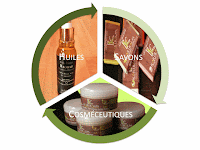A little more than two months till my departure, I’m really in the last leg of this journey. The first few months I was here were a scramble to find my footing, adjust to the culture and gather information. The second leg was a cross between developing and establishing my project at work while at the same time jumping between visitors and vacation days/weeks… Now that all my visitors have come and gone and now that I have a good grasp on life and work in Dakar, my last leg will be focused on making things happen- using what I’ve learned to get the project for Fair Trade up and running and to a point where I feel comfortable stepping away or handing it over. Same goes for my work at Bioessence. Here’s the news from both the Beyond Fair Trade Initiative and Bioessence Laboratories.
THE LATEST FROM THE BEYOND FAIR TRADE INITIATIVE

NEW WEBSITE: Hristo took on the task of creating a new website specifically for the Beyond Fair Trade Initiative so that all our work, proposals and research could be easily accessible to interested partners! We are continually updating this website in French and English and it’s a great place to visit if you want more details about the development of this project! Visit: https://sites.google.com/site/fairtradesenegal/
 GLOBAL GREENS CONGRESS 2012: To launch the concept of fair trade cooperatives as a method for adding value to agricultural production in Senegal, Earth Rights Institute will be leading a 2 day workshop during the annual Global Greens Conference in March 2012! This annual conference assembles members from different Green parties world wide and they will be holding the congress in Dakar this coming year. Because of ERIs work with sustainable economic trade systems, the planning committee was interested in Beyond Fair Trade playing a key role in the event.
GLOBAL GREENS CONGRESS 2012: To launch the concept of fair trade cooperatives as a method for adding value to agricultural production in Senegal, Earth Rights Institute will be leading a 2 day workshop during the annual Global Greens Conference in March 2012! This annual conference assembles members from different Green parties world wide and they will be holding the congress in Dakar this coming year. Because of ERIs work with sustainable economic trade systems, the planning committee was interested in Beyond Fair Trade playing a key role in the event.
We will be inviting representatives from Ecovillages to present their expectations for fair trade between villages, representatives from several different non-governmental organizations, and from the National Ecovillage Agency of Senegal. Through discussions and presentations we will be developing ideas that will help producers to work together through community led cooperatives. This is a great opportunity for us to launch the Beyond Fair Trade project and attract support from other international actors that will be attending the conference! More information about the conference is available here: http://www.globalgreens.org/
THE LATEST FROM BIOESSENCE:
 ORGANIC CERTIFICATION APPROVED: This month Ecocert approved Bioessence laboratories for organic certification of Baobab fruit!! Since my last trip to Kédougou for the organic certification inspection I really haven’t been too involved. Mame Khary Diene (director of Bioessence) returned from France about a month ago with her new baby girl and has been pretty preoccupied with being a new mother. In Kédougou, it’s still mid rainy season which makes working there pretty difficult, and traveling there even more difficult. There’s still a lot of follow up to assure that Bioessence is ready for any later inspection from Ecocert, but the hardest part is done. Now its just assuring that all the procedures and training that we developed are put into practice!
ORGANIC CERTIFICATION APPROVED: This month Ecocert approved Bioessence laboratories for organic certification of Baobab fruit!! Since my last trip to Kédougou for the organic certification inspection I really haven’t been too involved. Mame Khary Diene (director of Bioessence) returned from France about a month ago with her new baby girl and has been pretty preoccupied with being a new mother. In Kédougou, it’s still mid rainy season which makes working there pretty difficult, and traveling there even more difficult. There’s still a lot of follow up to assure that Bioessence is ready for any later inspection from Ecocert, but the hardest part is done. Now its just assuring that all the procedures and training that we developed are put into practice!





































